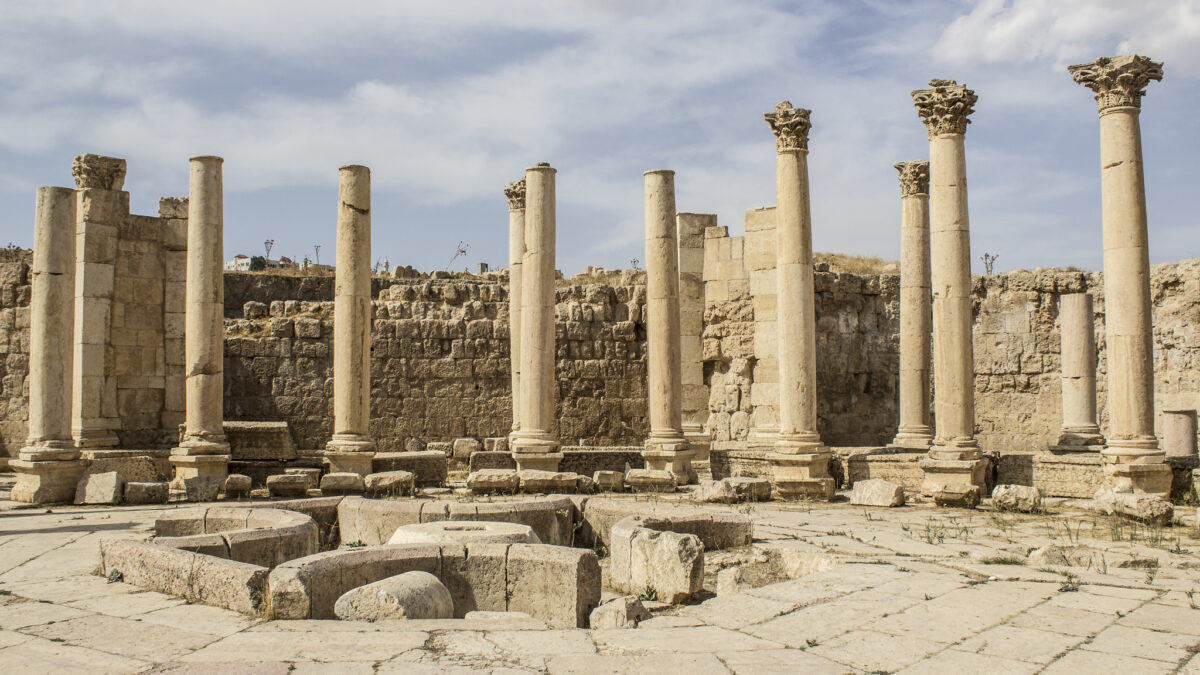
Whenever the gun control debate returns to the national stage after another horrific shooting, media outlets and social media accounts lob the same few talking points at one another. Among the most puzzling and misunderstood arguments for less gun control is this: Gun ownership protects people from a potentially authoritarian government.
Those on the Left tend to scoff at this proposition. What could one person in a rural town with an AR-15, say, do to combat a military equipped with tanks, drones, and fully automatic weapons? Admittedly, not very much. But those who are unconvinced that civilian gun ownership protects against authoritarianism would do well to give the argument some more thought.
If well-armed citizens could not defend themselves against the U.S. Army, terrorist groups such as ISIS should have shriveled and died long ago. Instead, the U.S. government has been operating in the Middle East since 1990 trying to stamp out whichever comparatively low-budget terrorist group or rogue state was causing chaos. Still, the United States has not succeeded.
If the U.S. government did try to force its citizens into an authoritarian governing system, it would not be wise to use its vast arsenal to bomb cities and destroy infrastructure like it has in places like Raqqa, Syria. The government would be spending money to blow its own assets to pieces.
Who would be carrying out the government’s attacks? Many members of the armed forces would be appalled at the idea of unleashing U.S. military force upon their own country–especially an armed country. Although some members of the military would undoubtedly be loyal to an authoritarian government, many would side with the civilians.
Domestic organizations like the Oath Keepers, a group of past and present military, police, and first responders who swear allegiance to the Constitution rather than current politicians, are a current example of armed Americans who would not side with a tyrannical regime. The first three orders the Oath Keepers swear never to obey are demands from the government to disarm American citizens, demands to conduct searches on Americans without a warrant, and demands to treat Americans as “unlawful enemy combatants.”
The organization has come under fire for some alarmist views, and it is by no means a perfect (or particularly tasteful) group. Several of its members have expressed opinions that international terror attacks and illegal immigration are somehow orchestrated to destabilize America and revoke freedoms. Its overarching goal, however, is to keep the federal government from seriously infringing upon the constitutional rights of all Americans.
Although any one armed organization or individual owning an AR-15 would likely have no effect against a government takeover, a coalition of millions of armed civilians standing against an authoritarian regime would have tremendous power. Much like the effect of one vote, one gun will not stop tyranny. But many together can enact change and protect citizens.
History provides many examples of an armed populace keeping its government in check. Peter Leeson, a professor of economics and law at George Mason University, contends that the ownership of longbows among non-nobles likely led to the Magna Carta’s final reissue. Once documents establishing universal rights bound the aristocrats and royals, politics became more stable and monarchs abused power less frequently. Society respected the rights of the lower classes much more broadly.
Stripping people of self-defense is not only a violation of rights, it spits in the face of America’s own beginnings. The American Revolution itself could not have happened without an armed populace. The U.S. Army was outgunned and often outmaneuvered, but Americans aren’t singing “God Save the Queen” before sporting events because individuals had the agency to protect themselves from an overbearing government.
Many more examples of armed civilian resistance to unwanted government authority exist: America’s failure in Vietnam, the 1989 overthrow of Romanian Communist Nicolae Ceausescu, and the ongoing Syrian Civil War, to name a few.
The Bielski partisans, a small group of Jewish guerilla World War II fighters, were able to protect more than 1,200 Jews from dying at the hands of the Nazis. The group’s main focus was to protect women, children, and the elderly. The Weimar Republic had disarmed its citizens in 1931, and Adolf Hitler’s party seized power in 1933.
It would be foolish to claim an armed German populace would have somehow stunted Hitler’s rise to power, but from their forest headquarters the Bielski partisans were able to run “one of the most successful rescue efforts during the Holocaust,” according to the U.S. Memorial Holocaust Museum’s website. That’s obviously a positive benefit to an armed populace.
Armed civilians have the power to resist a bad government, and the collective force of millions of armed Americans absolutely acts as a deterrent to increased authoritarianism from its own leaders.
Legislators and pundits who claim the United States would be safer without guns are extremely short-sighted. The country may see a slight downtick in deaths per year, but the cost is much larger than the payoff. Self-determination through civilians’ ability to fight authoritarian regimes is much more vital to preserving rights and freedom than is the illusion of safety.









